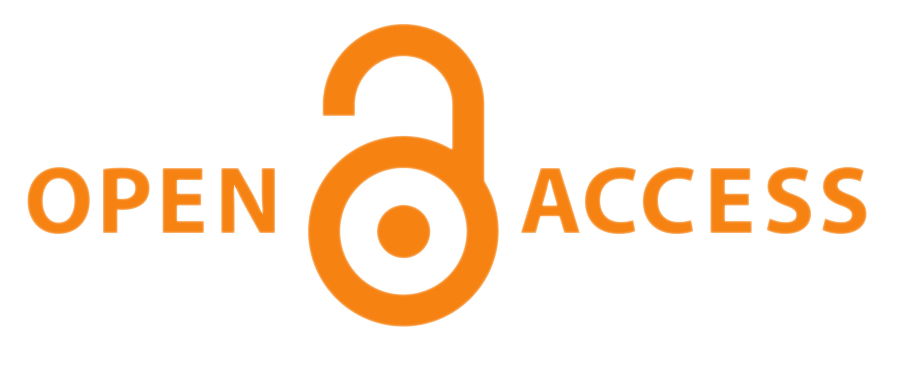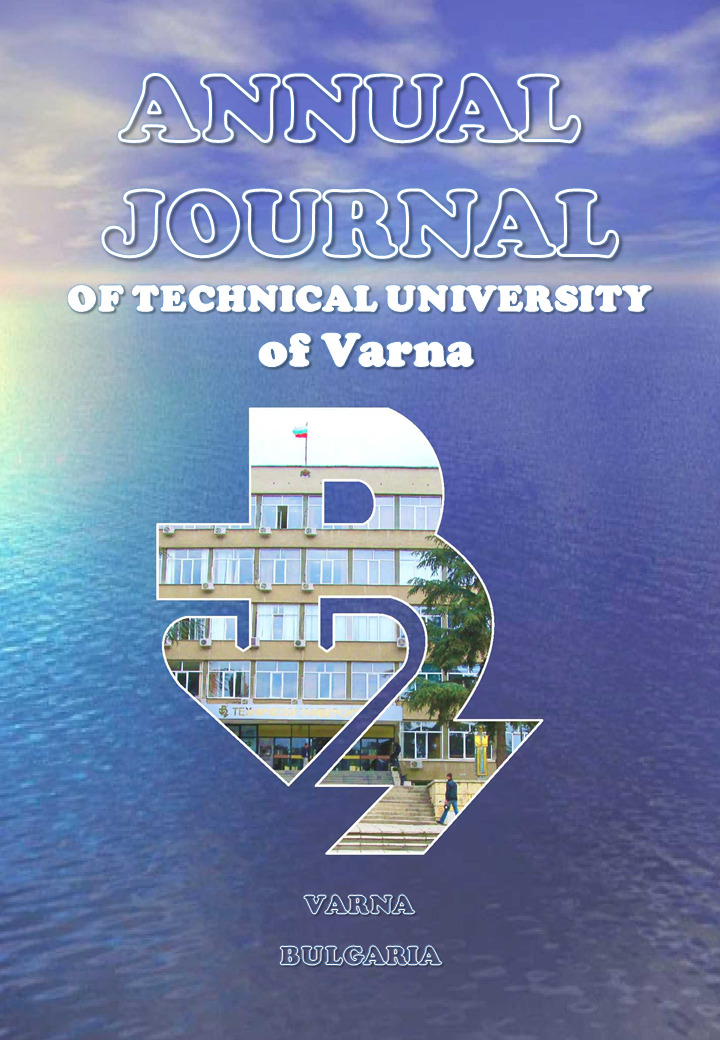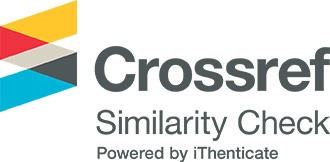Science teachers’ knowledge, attitudes and skills as determinants of classroom practices in entrepreneurship education in senior secondary schools in Lagos, Nigeria
DOI:
https://doi.org/10.29114/ajtuv.vol3.iss2.146Ключевые слова:
Science Teachers, entrepreneurship knowledge, entrepreneurship attitudes, entrepreneurship skills, classroom practicesАннотация
Entrepreneurship behaviour is a 21st century attribute required for transforming the industrial and employment space into productive ones. Science students are critical towards the achievement of these requirements. To ensure quality entrepreneurship education, science teachers’ entrepreneurship background and characteristics become germane. This study, therefore, investigated the extent to which science teachers’ entrepreneurship knowledge, attitudes and skills determine their classroom practices in entrepreneurship education in selected Senior Secondary Schools in Lagos, Nigeria. The correlational type of the cross-sectional descriptive research design was adopted. A purposively selected sample of 245 SS2 Science teachers from thirty schools in Lagos mainland, Nigeria participated in the study. Instruments used were: Teacher Entrepreneurship Knowledge Test (r=.86), Teacher Entrepreneurship Attitudes Scale (r=.89), Teacher Entrepreneurship Skills Inventory (r=.85) and Classroom Practices Rating Scale (r=.89). Data were analysed using Pearson Product Moment Correlation and Multiple Regression. Findings showed strong and significant bivariate relationships between each of teachers knowledge (r=.59), attitudes r=.55), skills (r=.52) and classroom practices. The three factors jointly explained 46% of classroom practices with significant relative effects. Teachers require good knowledge, attitudes and skills for effective implementation of entrepreneurship programmes in science education, hence, they need to be exposed to in-service training in entrepreneurial studies.
Скачивания
Библиографические ссылки
<p>Ababio, O. Y. (2005). The New School Chemistry for Senior Secondary Schools (3rd Edition). Onitsha, African Fast Publisher Ltd.<br /> <br />Achor, E.E., & Wilfred-Bonse, K.U. (2013). The need to integrate entrepreneurship education into science education teachers' curriculum in Nigeria. Journal of Science and Vocational Education, 7, 111-123.<br /><a href="https://scholar.google.com/scholar?hl=bg&as_sdt=0%2C5&q=Achor%2C+E.E.%2C+%26+Wilfred-Bonse%2C+K.U.+%282013%29.+The+need+to+integrate+entrepreneurship+education+into+science+education+teachers%27+curriculum+in+Nigeria.+Journal+of+Science+and+Vocational+Education%2C+7%2C+111-123.&btnG=" target="_blank" rel="noopener">Google Scholar</a><br /> <br />Adeyemo, S. A. (2009). Understanding and Acquisition of Entrepreneurial Skills: A Pedagogical Re-orientation for Classroom Teacher in Science Education. Journal of Turkish Science Education, 6 (3), 57-65.<br /><a href="https://scholar.google.com/scholar?hl=bg&as_sdt=0%2C5&q=Adeyemo%2C+S.+A.+%282009%29.+Understanding+and+Acquisition+of+Entrepreneurial+Skills%3A+A+Pedagogical+Re-orientation+for+Classroom+Teacher+in+Science+Education.+Journal+of+Turkish+Science+Education%2C+6+%283%29%2C+57-65.&btnG=" target="_blank" rel="noopener">Google Scholar</a><br /> <br />Agommuoh, P. C. & Ndirika, M. C. (2017). Strategies for Promoting Entrepreneurial Skills in Science Education Students for Poverty Eradication. IOSR Journal of Research & Method in Education, 7 (3), 45-49.<br /><a href="https://doi.org/10.9790/7388-0703034549" target="_blank" rel="noopener">Crossref</a><br /> <br />Akinsola, M. K. & Ogunleye, B. O. (2003). Improving mathematics and science curricula at the implementation stage. O. Ayodele-Bamisaiye, I. A. Nwazuoke and A. Okediran (Eds.) Education this Millennium- Innovations in Theory and Practice. Ibadan: Macmillan Nigeria Publishers Limited. 211-218. ISBN: 978-018-352-3.<br /> <br />Akinsola, M. K. & Ogunleye, B. O. (2004). Statistical Designs and Research Methods in Education. Unpublished Mimeograph, Department of Teacher Education, University of Ibadan. Ibadan, Nigeria.<br /> <br />Alam, G. M., Oloruntegbe, K. O. & Orimogunje, T. (2010). Volumetric analysis and chemistry students' performance: combined influence of study habit, physiological and psychological factors. Scientific Research and Essays, 5 (11),1325-1332.
<p>Babajide, V. F. T. (2010). Generative ad Predict-Observe-Expain Instructional Strategies as Determinants of Senior Secondary School Students Achievement and Practical Skills in Physics. Unpublished PhD Thesis, University of Ibadan, Nigeria.</p>
<p> <br />Bakere, B. (2013). Addressing Youth Unemployment in Nigeria. Retrieved 10 August, 2019 from <a href="https://businessdayonline.com/2013/11/addressing" target="_blank" rel="noopener">https://businessdayonline.com/2013/11/addressing</a><br /> <br />Bamgboye, E. A., Lucas, E. O., Agbeja, B. O., Author & Fawole, I. (2005). Statistical analysis and inferences. In A. I.Olayinka, V. O. Taiwo, A. Raji-Oyelade & I. P. Farai (Eds.). Methodology of Basic and Applied Research. Ibadan: The Postgraduate School, University of Ibadan. ISBN: 978-37883-9-6.<br /> <br />Bikse, V. (2009). Petijums Latvijas progress uznemejdarbibas izglitibas attistiba pec iestajas Eiropas Savieniba / Research, The progress of the development of entrepreneurship education in Latvia after joining the European Union. Riga: University of Latvia, Faculty of Economics and Management, Mission of the European Commission in Latvia.<br /> <br />Biernacki, R. (2001). Industrialization. International Encyclopedia of the Social & Behavioral Sciences. <br /><a href="https://doi.org/10.1016/B0-08-043076-7/01897-0" target="_blank" rel="noopener">Crossref</a><br /> <br />Bolaji, O.A. (2012). Integrating entrepreneurship education into science education: Science teachers perspectives. Journal of Science, Technology, Mathematics and Education, 8 (3), 181-187. <br /><a href="https://scholar.google.com/scholar?hl=bg&as_sdt=0%2C5&q=Bolaji%2C+O.A.+%282012%29.+Integrating+entrepreneurship+education+into+science+education%3A+Science+teachers+perspectives.+Journal+of+Science%2C+Technology%2C+Mathematics+and+Education%2C+8+%283%29%2C+181-187.&btnG=" target="_blank" rel="noopener">Google Scholar</a><br /> <br />Chappelow, J. (2019). Industrialization. Retrieved from <a href="https://www.investopedia.com/terms/i/industrialization.asp" target="_blank" rel="noopener">https://www.investopedia.com/terms/i/industrialization.asp</a><br /> <br />Das, R. C. (2006). Science Teaching in Schools. New Delhi, Sterling publishers private limited.<br /> <br />Esaiasson, M. (2018). Why knowledge in entrepreneurship and innovation is needed. Retrieved from <a href="https://www.entrepreneur.lu.se/en" target="_blank" rel="noopener">https://www.entrepreneur.lu.se/en</a><br /> <br />European Commission (2008). Entrepreneurship in higher education. Especially within non-business studies: Final report of the expert group. Brussels, Belgium.<br /> <br />European Commission (2011). Entrepreneurship education: enabling teachers as a critical success factor. A report on teacher education and training to prepare teachers for the challenge of entrepreneurship education. Bruxelles: Entrepreneurship Unit.<br /> <br />European Commission (2015). Commission Staff Working Document. Turkey, 2015 Report.<br /> <br />Eya, N. M. (2015). Investigating the Contents of the Senior Secondary School Chemistry Curriculum that can Inculcate Entrepreneurial Skills among Students in Nigeria. International Journal for Cross-Disciplinary Subjects in Education (IJCDSE) 6 (2), 2195-2201.<br /><a href="https://doi.org/10.20533/ijcdse.2042.6364.2015.0303" target="_blank" rel="noopener">Crossref</a><br /> <br />Fahmy, A. F. M. (2000). Systemic Approach to teaching and learning chemistry for 21st century Workshop on New Trend in chemistry. Budapest, Hungary, August 5-10, 2000. Retrieved from fahmy@online.com.eg.<br /> <br />Federal Republic of Nigeria (2004). National Policy on Education. Lagos, Government Press.<br /> </p>
<p>Fensham, P. J. (2006). Science and technology education in the post-compulsory years. Hegarty-Hazel, E. (Ed.). The Student Laboratory and the Science Curriculum. London: Routeledge.<br /> <br />Ige, T. A. (2003). A problem-solving model for building theory and practice in science teaching. African Journal of Education Research, 9 (1&2), 147-155.</p>
<p><br />Kaseorg, M., & Raudsaar, M. (2013). Students'attitudes towards entrepreneurship. International Journal of Business and Management Studies, 2 (2), 31-43. <br /><a href="https://scholar.google.com/scholar?hl=bg&as_sdt=0%2C5&q=Kaseorg%2C+M.%2C+%26+Raudsaar%2C+M.+%282013%29.+Students%27attitudes+towards+entrepreneurship.+International+Journal+of+Business+and+Management+Studies%2C+2+%282%29%2C+31-43.&btnG=" target="_blank" rel="noopener">Google Scholar</a><br /> <br />Llopis, G. (2013). Working with an Entrepreneurial Attitude is a Powerful Addiction. Retrieved from <a href="https://www.forbes.com/sites/glennllopis/2013/01/15/working-with-an-entrepreneurial-attitude-is-a-powerful-addiction/#4f4cf89e6320" target="_blank" rel="noopener">https://www.forbes.com/sites/glennllopis/2013/01/15/working-with-an-entrepreneurial-attitude-is-a-powerful-addiction/#4f4cf89e6320</a><br /> <br />Lobler, H. (2006). Learning entrepreneurship from a constructivist perspective. Technology, Analysis & Strategic Management, 18 (1), 19-38.<br /><a href="https://doi.org/10.1080/09537320500520460" target="_blank" rel="noopener">Crossref</a><br /> <br />Neck, H.M., & Greene, P.G. (2011). Entrepreneurship education: known worlds and new frontiers. Journal of Small Business Management, 49 (1), 55-70.<br /><a href="https://doi.org/10.1111/j.1540-627X.2010.00314.x" target="_blank" rel="noopener">Crossref</a><br /> </p>
<p>Ogunlela, V. B. & Ogunleye, B. O. (2014). Promoting quality assurance practices for ODL programmes in West African higher educational institutions: The role of RETRIDAL. International Open and Distance Learning Journal. 4th ACDE 2014 Special Edition: 95-108.</p>
<p>Ogunleye, B. O. & Fasakin, A. O. (2011). Everyday phenomena in physics education: impact on male and female students' achievement, attitude and practical skills in urban and peri-urban settings in Nigeria. Pakistan Journal of Social Sciences, 8 (6), 316-324.<br /> <br />Ogunleye, B. O. (2007). Teachers' perceived barriers to successful implementation of ICT in the teaching and learning of science subjects in Nigerian secondary schools. Nigeria Journal of Computer Literacy, 8 (1), 15-31.<br /> <br />Ogunleye, B. O. (2010). Implementation of chemistry practical work in senior secondary schools in Ogun State, Nigeria. African Journal of Educational Management, 13 (2), 227-242.</p>
<p><br />Ogunleye, B. O. (2011). "Team pair solo" cooperative lerning and personality type as determinants of students' achievement and attitude to chemistry. African Research Review, 5 (6), 259-276.<br /><a href="https://doi.org/10.4314/afrrev.v5i6.22" target="_blank" rel="noopener">Crossref</a><br /> <br />Ogunleye, B. O. (2012). Relationship among teachers' science process skills, scientific attitudes and students' performance in Chemistry. International Journal of Educational Leadership, 4 (4), 41-48.<br /> <br />Ogunleye, Y. O. (2014). Impact of Collaborative Intervention Programme on pre-primary and Primary School Teachers Awareness, Acquisition and Utilisation of Educational Research Findings in Oyo State, Nigeria. Unpublished PhD Thesis, University of Ibadan, Ibadan, Nigeria.<br /><a href="https://scholar.google.com/scholar?hl=bg&as_sdt=0%2C5&q=Ogunleye%2C+Y.+O.+%282014%29.+Impact+of+Collaborative+Intervention+Programme+on+pre-primary+and+Primary+School+Teachers+Awareness%2C+Acquisition+and+Utilisation+of+Educational+Research+Findings+in+Oyo+State%2C+Nigeria.+Unpublished+PhD+Thesis%2C+University+of+Ibadan%2C+Ibadan%2C+Nigeria.&btnG=" target="_blank" rel="noopener">Google Scholar</a><br /> <br />Rae, D. & Carswell, M. (2001). Toward a conceptual understanding of entrepreneurial learning. Journal of Small Business and Enterprise Development, 8 (2), 150-8.<br /><a href="https://doi.org/10.1108/EUM0000000006816" target="_blank" rel="noopener">Crossref</a><br /> <br />Raffo, C., Lovatt, A., Banks, M., & O'Connor, J. (2000). Teaching and learning entrepreneurship for micro and small businesses in the cultural industries sector, Education + Training, 42 (6), 356-365.<br /><a href="https://doi.org/10.1108/00400910010353653" target="_blank" rel="noopener">Crossref</a><br /> <br />Rasmussen, E. & Sorheim, R. (2005). Action-Based Entrepreneurship Education. Technovation, 26 (2), 185-194.<br /><a href="https://doi.org/10.1016/j.technovation.2005.06.012" target="_blank" rel="noopener">Crossref</a><br /> <br />Reed, J. (2016). 5 Key Attitudes for Entrepreneurial Success. Retrieved from <a href="https://www.delawareinc.com/blog/five-key-attitudes-for-entrepreneurial-success/" target="_blank" rel="noopener">https://www.delawareinc.com/blog/five-key-attitudes-for-entrepreneurial-success/</a><br /> <br />Rudhumbu, D., Svotwa, D., Munyanyiwa, T. & Mutsau, M. (2016). Attitudes of students towards entrepreneurship education at two selected higher education institutions in Botswana: a critical analysis and reflection. Academic Journal of Interdisciplinary Studies, 5 (2), 84-94. <br /><a href="https://doi.org/10.5901/ajis.2016.v5n2p83" target="_blank" rel="noopener">Crossref</a><br /> <br />San-Tan, S., & Ng, C. F. (2006). A problem-based learning approach to entrepreneurship education. Education + Training, 48 (6), 416-428.<br /><a href="https://doi.org/10.1108/00400910610692606" target="_blank" rel="noopener">Crossref</a><br /> <br />Seikkula-Leino, J. (2011). The implementation of entrepreneurship education through curriculum reform in Finnish comprehensive schools. Journal of Curriculum Studies, 43 (1), 69-85.<br /><a href="https://doi.org/10.1080/00220270903544685" target="_blank" rel="noopener">Crossref</a><br /> <br />Uka, N. K. (2015). Developing Entrepreneurial Skills in Secondary School Students through Effective Mathematics Education in Aba Nigeria. International Journal of Education Learning and Developing, 3 (7), 1-11.<br /><a href="https://scholar.google.com/scholar?hl=bg&as_sdt=0%2C5&q=Uka%2C+N.+K.+%282015%29.+Developing+Entrepreneurial+Skills+in+Secondary+School+Students+through+Effective+Mathematics+Education+in+Aba+Nigeria.+International+Journal+of+Education+Learning+and+Developing%2C+3+%287%29%2C+1-11.&btnG=" target="_blank" rel="noopener">Google Scholar</a><br /> <br />Uka, N. K. (2006). Teachers' Mathematical Attitude Ethno mathematical Knowledge and Primary School Pupils Academic Achievement in Mathematics in Abia State, Nigeria. Unpublished Ph.D Thesis, University of Calabar, Calabar. <br /><a href="https://scholar.google.com/scholar?hl=bg&as_sdt=0%2C5&q=Uka%2C+N.+K.+%282006%29.+Teachers%27+Mathematical+Attitude+Ethno+mathematical+Knowledge+and+Primary+School+Pupils+Academic+Achievement+in+Mathematics+in+Abia+State%2C+Nigeria.+Unpublished+Ph.D+Thesis%2C+University+of+Calabar%2C+Calabar.&btnG=" target="_blank" rel="noopener">Google Scholar</a><br /> <br />Wei, X., Liu, X. & Sha, J. (2019). How Does the Entrepreneurship Education Influence the Students' Innovation? Testing on the Multiple Mediation Model. Front Psychology 10 (1557). <br /><a href="https://doi.org/10.3389/fpsyg.2019.01557" target="_blank" rel="noopener">Crossref</a></p>
Загрузки
Опубликован
Как цитировать
Выпуск
Раздел
Лицензия
СОГЛАШЕНИЕ О ПУБЛИКАЦИИ
Ежегодный журнал Технического университета Варны (ЕЖТУВ) гарантирует опубликование оригинальных материалов и, в то же время, предоставление своим авторам значительной свободы. Для этого мы придерживаемся гибкой политики в отношении авторских прав, означающей, что передача издателю авторских прав отсутствует, и авторы сохраняют эксклюзивные авторские права на свою работу.
При подаче рукописи ответственный автор должен принять условия, изложенные в данном Соглашении о публикации и состоящие в следующем:
ПРЕДОСТАВЛЕНИЕ ПРАВ ОТВЕТСТВЕННЫМ АВТОРОМ
Ответственный автор предоставляет AJTUV в течение полного срока действия авторского права и любых продлений или подновлений этого срока следующее:
• безотзывное неисключительное право публиковать, воспроизводить, переиздавать, передавать, распространять и иным образом использовать Работу в электронных и печатных изданиях и в производных произведениях по всему миру, на всех языках и во всех известных в настоящее время или появившихся впоследствии СМИ.
• безотзывное неисключительное право создавать и хранить электронные архивные копии Работы, в том числе право депонирования Работы в цифровых хранилищах открытого доступа.
• безотзывное неисключительное право лицензировать других лиц на воспроизведение, перевод, переиздание, передачу и распространение Работы при условии, что Авторы должным образом указаны (в настоящее время это осуществляется путем публикации Работы в соответствии с лицензией Creative Commons Attribution 4.0 Unported License).
Авторское право на Работу принадлежит Авторам. Авторы сохраняют за собой права на патенты, товарные знаки и другие права на интеллектуальную собственность.
ОБЯЗАННОСТИ ОТВЕТСТВЕННОГО АВТОРА
При распространении или повторной публикации Работы Ответственный Автор соглашается указывать AJTUV, в котором опубликована Работа, как источник первой публикации. Ответственный Автор гарантирует, что соавторы также будут согласны, чтобы Работа опубликовалась в AJTUV, который будет рассматриваться как первичный источник публикации в случае ее распространения или переиздания.
ГАРАНТИИ СО СТОРОНЫ ОТВЕТСТВЕННОГО АВТОРА
Ответственный автор гарантирует, что его Работа не нарушает закон или права какой-либо третьей стороны и, в частности, что Работа не содержит дискредитирующие материалы и не нарушает какие-либо литературные или имущественные права, права интеллектуальной собственности или любые другие права, касающиеся неприкосновенности частной жизни. Ответственный автор гарантирует, что Работа является оригинальной, официально не публиковалась ни в одном другом рецензируемом журнале, книге или редактируемом сборнике, и не рассматривается для какой-либо подобной публикации. Ответственный автор также гарантирует, что он или она имеет полное право заключить это соглашение. Если Работа была подготовлена совместно с другими соавторами, Ответственный Автор гарантирует, что все соавторы согласны с представлением и публикацией Работы.
Ответственный автор обязуется не вовлекать ЕЖТУВ в какие-любо нарушения вышеупомянутых заявлений и гарантий.
ПРАВА И ОБЯЗАННОСТИ ЕЖТУВ
ЕЖТУВ соглашается опубликовать Работу от имени ее авторов. ЕЖТУВ получает от имени авторов полномочия по обеспечению предусмотренных данным соглашением прав в отношении третьих сторон (например, в случаях плагиата или нарушения авторских прав).
Заявление о конфиденциальности ЕЖТУВ
Имена и адреса электронной почты, существующие на веб-сайте ЕЖТУВ, будут использоваться только и исключительно в заявленных целях данного ежегодного журнала и не будут доступны в иных целях или для любой другой стороны.
Вся предоставленная личная информация останется исключительно у издателя и не будет передаваться каким-либо внешним лицам, если на это не будет предоставлено предварительное разрешение.
Ваша личная информация никоим образом не будет продаваться, распространяться или публиковаться.









